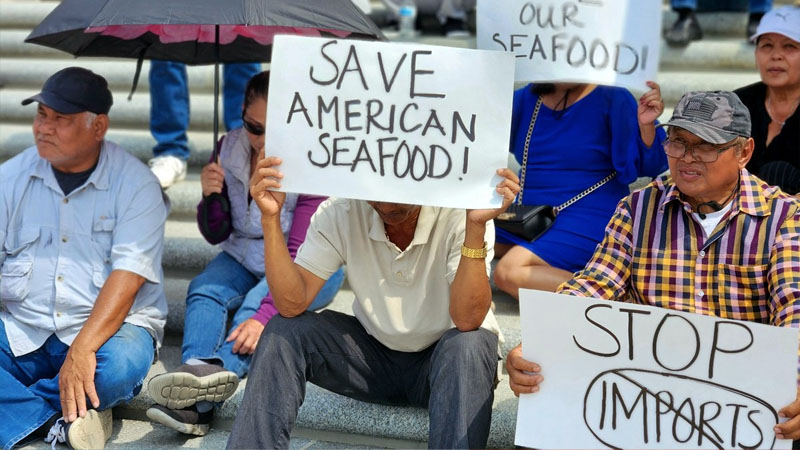Exclusive content

Congressmen Clay Higgins and Troy Nehls have introduced the Save Our Shrimpers Act of 2024. This proposed legislation aims to halt the flow of federal funds to International Financial Institutions (IFIs) that provide subsidies to foreign entities engaged in shrimp farming, processing, or export activities to the United States.
Addressing Challenges Facing Domestic Shrimpers
The proposed act comes in response to mounting challenges faced by domestic shrimpers, including increased competition from foreign imports and rising operational costs. Reports indicate that U.S. taxpayer dollars are inadvertently supporting foreign shrimp farm operations through IFIs such as the International Monetary Fund (IMF), exacerbating the difficulties encountered by the domestic shrimp industry.
Should the Save Our Shrimpers Act of 2024 pass into law, it would trigger an investigation by the United States Government Accountability Office (GAO). This investigation would scrutinize the compliance of IFIs’ U.S. Executive Directors with Federal law USC 262(h), which mandates voting against any assistance to export commodities causing injury or harm to U.S. producers. Additionally, the proposed legislation mandates annual reports to Congress to monitor IFIs’ adherence to these regulations.
Advocacy for Domestic Seafood Industry
Congressman Clay Higgins has been a vocal advocate for Louisiana’s seafood industry. He previously championed the Imported Seafood Safety Standards Act, which aimed to hold foreign seafood producers and exporters to the same rigorous standards as their U.S. counterparts. Representative Higgins emphasizes the importance of protecting Louisiana’s shrimping industry, highlighting its role as both a cultural tradition and a significant economic driver for the state.
Congressman Troy Nehls echoes concerns regarding the challenges faced by shrimpers, particularly in the Gulf and Atlantic Coasts. He emphasizes the urgent need to address the influx of foreign shrimp imports, which have driven down prices to unsustainable levels for many domestic shrimpers. Nehls stresses the importance of exploring legislative solutions to safeguard the livelihoods of shrimpers across the nation.